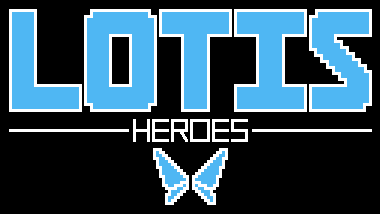Author's Retrospective
Originally posted on my blog, shortly after the self-publication of James and the Time Patrol Agency.
So, I just self-published a novelette about a time travelling cop, and I thought, 'Well, let's write an article about writing about time travel!'
From Doctor Who to Marvel Comics, time travel has been used in many forms of media and in many different genres. Throughout its long stay in fiction, time travel has been portrayed with many different, varying rules sets. So, when I sat down to write a time travel story for an anthology that the Masquerade Crew was putting together (I don't really know what happened with that, I only found out today that it actually did get published on Amazon as an e-book called Forbidden Future, but after a while, I decided to just publish it on Smashwords myself), I had to decide how big of a deal time travel would play in the story.
Now, the task was to simply write a story about THE FUTURE - the 'person goes to the future and the story is really the author speculating about how the future will turn out' type of story. So, I sat down to try to figure out what the future would be like. I recalled some Doctor Who episodes, remembered some of Asimov's stories, called to mind some Doraemon installments, and tried to find some inspiration somewhere. As I recalled more time travel stories, a few things stuck in my mind. In particular, how messed up the world would be if time travel actually existed.
Needless to say, my attention shifted from THE FUTURE to the impact that time travel might have if it was more... Well, I don't want to say 'realistic', so let's just say that I wanted to take some things to their 'logical' conclusion.
To begin, there are, generally (with a lot of exceptions), three ways that time travel works in fiction.
Firstly, there's the ever-popular stable time loop, where the timeline cannot be changed. If a time traveller goes back into the past, anything that they do in the past was already part of the timeline. The timeline can never be changed. They were DESTINED to go back in time and do what they did. Of course, this gets confusing when something the time traveller does in the past was the reason that they went back into the past in the first place - this is a paradox.
Secondly, there's the mutable timeline, where the timeline can be changed by time travellers. This is probably the type of time travel that fiction portrays with the least amount of consistency. Sometimes the time travellers remember the 'original' timeline, sometimes they don't. Sometimes people still exist after their past has been erased, sometimes they don't. Paradoxes abound and the whole thing gets crazy.
Thirdly, there's the one where any time travel will create an alternate timeline. No paradoxes are created, since the time traveller merely travels to another timeline, and both timelines continue on. This set of rules makes logical sense, so that's not what the story is about.
The second set of rules (plus elements of the first set) is what the story is really about. If time travel became prevalent, if time travel operated under this set of rules, what would that mean? How would people deal with timeline changes? How would paradoxes be dealt with?
Well, now that I had my premises (which is nothing like what the anthology wanted), I had to decide on how to present a story that would tackle these issues. That was how the Time Patrol Agency was born. They would have procedures to deal with paradoxes and timeline changes, they would have the technology to time travel, and they would have the sacred mission of patrolling eternity (which is what the armless clock that is a part of their logo symbolizes). Then, James, the cop from the present who gets flung to the future and has everything explained to him (and, by extension, the readers), was added to the mix, and there was my story.
And that's a brief look at my experience with writing about time travel.
In the end though, to be honest, the whole point of this article is to get you to buy my book. ;)
